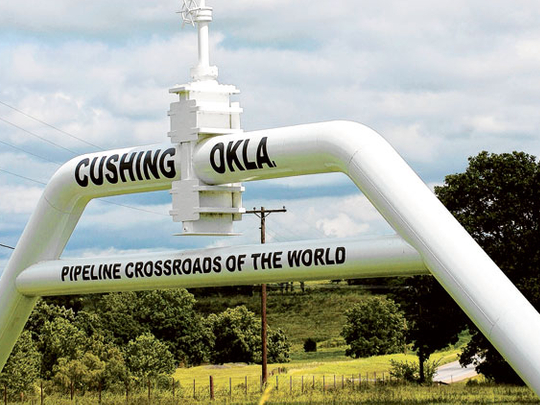
Since the 1970s oil crisis, the United States and the West have been looking to reduce their reliance on energy sourced from the Middle East region, an approach which gained traction during the administration of former US president Bill Clinton in the 1990s.
Over the past two decades, the US made significant progress in this area, becoming more independent in internal and external energy sources away from the Middle East. The latest development — and one which has seen its deadline brought even further forward — is the US and West's independence from Arab oil.
US outlook
According to a recent report by BP, the US will be almost completely independent in the field of energy by 2030 through expanding local oil and gas production capacity and increasing its imports from neighbouring Canada, thus reducing its reliance on Middle East oil.
Regarding Washington's policy on development of domestic energy sources, the US has made very sophisticated technological achievements that have enabled it to maintain high levels of oil production. The country's use of the latest technologies has led to doubling of gas production, creating a huge surplus in global markets and bringing down the prices of gas futures contracts from $11 (Dh40.40) to $2.50 at present.
This has happened despite soaring oil prices, which have reached record levels.
The new technologies will allow access to huge gas reserves, and will also lead to reducing the cost of gas extraction, which was high in the US when compared to other regions, especially in the Arabian Gulf.
The remaining needs and demands of oil and gas will be met by depending on nearby countries in the Americas, such as Canada, Mexico and Venezuela, which last year made significant oil discoveries, making it among the top countries in terms of oil reserves.
On the other hand, the BP report revealed that China and India have become almost entirely dependent on oil imported from the Middle East and the Gulf region specifically. China imports 80 per cent while India imports 90 per cent of its oil and gas from this region.
Thus, dramatic changes are expected to take place with regard to the nature of alliances and power centres, especially as the Arab Spring ushers in new radical changes to this region.
New alliances take shape
The new alliances in the Middle East provide clear evidence of these expected changes. There is a new map of global alliances that is being shaped and will have deep strategic, economic and military impacts over the next two decades.
If oil and gas consuming countries are tailoring future strategies to ensure the sustainability of energy resources — as well as through developing domestic sources and establishing new alliances and economic partnerships — then, the exporting countries, particularly the Arab ones, must act, not react, before it's too late. They should not simply wait and see what happens as consumers struggle to secure external sources of energy.
The consequences will go beyond the issue of finding new sources to export their oil to include complicated political, security and military aspects.
This could make the exporting countries vulnerable to painful consequences. We should not forget that alliances in this region basically rely on estimates made by the oil consuming countries and their needs for sources of energy. If it is true that Venezuela's proven oil reserves exceed those of Saudi Arabia — which has the world's largest oil reserves at present — new centres of oil and gas production will emerge in the next decades. One centre is already in the Middle East, the other one will be in South America and the third centre is in Russia — a country which is rich in hydrocarbon resources.
Power base to shift
In such a case, the world will witness a radical change in the map of alliances of producing and consuming countries, which will result in a new map of balance of power and global alliances. Now is the time for the countries of this region to act, lay down new strategies and prepare for this coming change.
Dr Mohammad Al Asoomi is a UAE economic expert and specialist in economic and social development in the UAE and the GCC countries.












